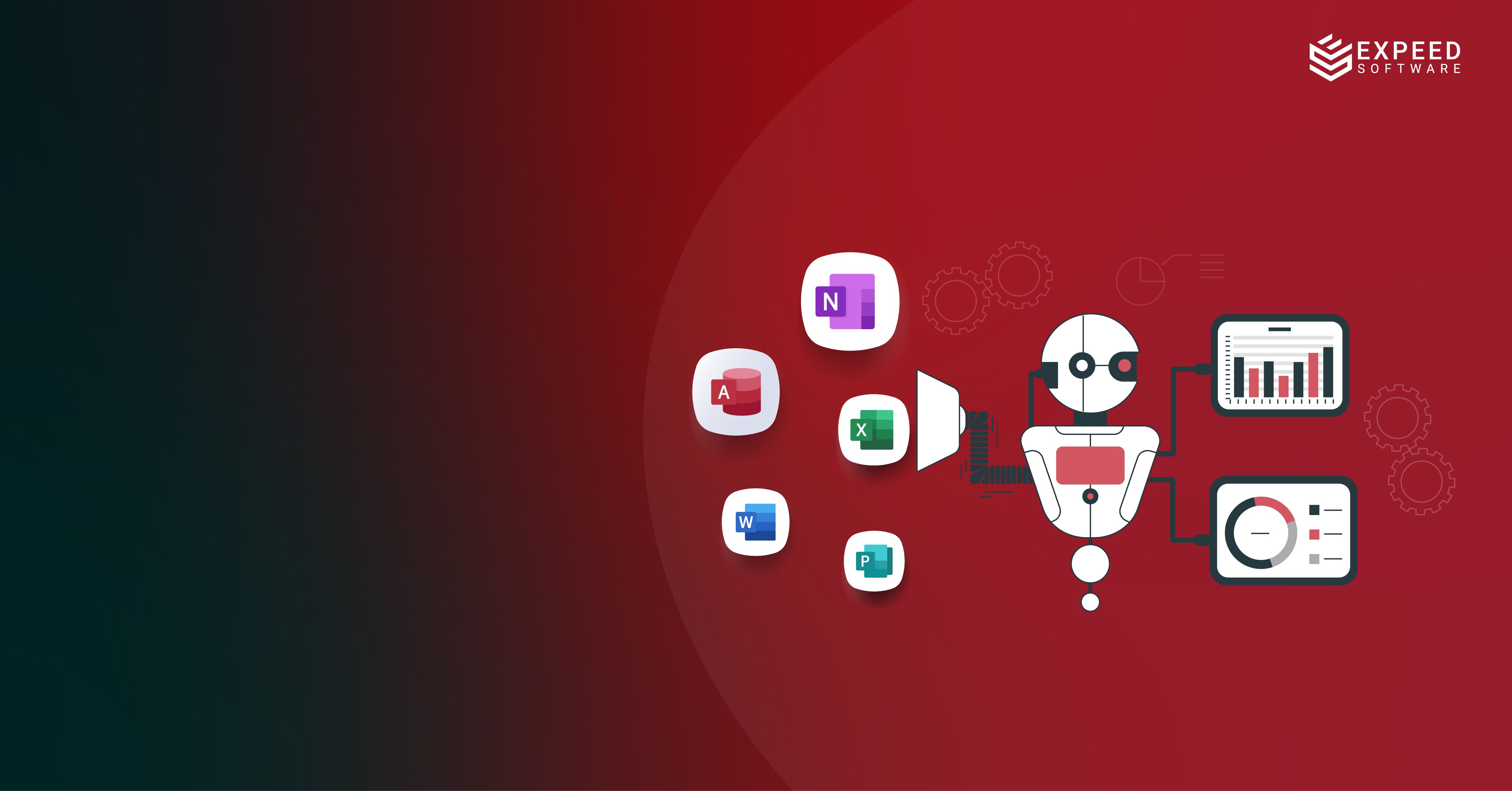Getting Inventive With Mobile App Development
We live in an age where there seems to be a mobile app for every conceivable task and requirement, and yet somehow, we find ourselves continually seeking more. Welcome to the age of inventive mobile app development, where the market is dominated by those who challenge the status quo or identify untapped user engagement opportunities.
As app users, we’re all spoiled for choices with mobile applications that seek to either entertain us or make our lives hassle-free and more productive. Our Play Stores or App Stores deliver delightful surprises and updates every day, and frankly, it’s an exciting time to be alive.
However, as businesses, we’re on a hamster wheel, constantly trying to offer the latest technologies and the best user experiences through our mobile app solutions. Given the pace at which software and hardware inventions are being adopted across industries, with advancements that were cutting-edge a year or two ago now becoming the norm, businesses have no option but to stay ahead of trends to leverage the latest opportunities in mobile app development.
Here’s our list of the top mobile app development trends to watch in 2024. While some of these may sound familiar from 2023, we guarantee you that most of these technologies are set to go mainstream among mobile app development companies before the year ends. And, if you’re a business looking to build a new mobile app or thinking of revamping your existing one, keep an eye out for the technology that resonates the best with your industry.
Who’s Driving The Change?
Before we start listing the trending techs that are all the rage among mobile app development companies around the world, we need to understand what or who is driving all mainstream innovation.
For the longest time, advancements in the larger spectrum of science and technology have been solely responsible for driving improvements in consumer-based business applications and appliances. With a decent amount of geo-political influence, tech innovations were used to enhance man’s entertainment, education, communication, and work environment.
But of late, there’s a huge shift in this dynamic where user expectations and consumer behavior have changed radically to drive innovation. According to the International Telecommunication Union (ITU), there were more than 8.58 billion mobile subscriptions in use worldwide in 2022, compared to a global population of 7.95 billion halfway through the year.
The implication here is that mobile phones have weaved so well into the fabric of our daily living that a large section of the population has made space for more than one device.
Compound that with an instant gratification culture expecting supercomputers to deliver customized content and recommendations every other second, and you’re looking at a massive network of people, acting as a single wave of demand for personalization, convenience, and usability.
And if that wasn’t enough, the fact that there are hundreds of new applications entering the market every day in an attempt to capture even the thinnest slice of this ever-growing pie makes it an entirely ‘user’s-choice market.’
The conclusion here is that while advancements in technology and socio-economic conditions only act as conductors of innovation, the key drivers of change are the users – the people. Businesses can no longer afford to push outdated applications into the marketplace and expect to succeed or, at the very least, survive. Only those organizations that integrate themselves with the latest technologies to offer real value and novelty, and stay committed to reinventing themselves regularly can dominate the market.
Top Mobile App Development Trends For 2024
The year 2023 saw us talking a lot about Artificial Intelligence, Blockchains, Low-code/No-code application builders, and more. These technologies continue to dominate the most widespread adoption trends in the industry in 2024.
In this article, we’ll be looking at some new trendsetters in the mobile app development space, and some advanced products and solutions from the year gone by.
1. Super Apps In The Making
We’re kicking off with Super Apps – a concept everyone’s super excited about. In 2024, we’re going to see more companies rolling out mobile apps that can offer multiple services within a single platform. On the one hand, this trend would help consumers to use their mobile device storage more efficiently, replacing multiple apps with just one. On the other hand, this consolidation enables businesses to target multiple user segments with one single application thereby improving app retention rates.
Super Apps are expected to disrupt the tech ecosystem significantly, and industries like finance, retail, and services stand to benefit the most from this. Imagine an app that allows you to make payments, book travel and entertainment tickets, order food and groceries, navigate to nearby shops and restaurants, and even hail a cab!
The challenge here obviously is making this multi-purpose app lightweight, easily accessible, and offering high-speed performance. But with advancements in microservices architecture and scalable cloud platforms, Super Apps are close to becoming an everyday reality.
2. Mobile Ed-Tech Driving Accessible Learning
The pandemic ushered in a new era of e-learning with an improvement, one driven by mobile learning apps. Today mobile education technology makes up a huge segment of mobile application development, and the global mobile learning market is expected to reach $37.6 billion by 2025. And we’re not talking about high school and grad-level courses. The employee training and development industry is seen taking the most advantage of this technology. Over 67% of US companies offer mobile learning as part of their training programs.

The new-age mobile learning apps are becoming more accessible, personalized, and interactive. By the end of 2024, we can expect to see applications that leverage AR/VR experiences to enhance learning. By promoting more microlearning modules, gamified for better engagement, the ed-tech industry is expected to gain more popularity in 2024.
3. Applications for Foldable Devices
Foldable phones are making a comeback this year, forcing mobile application development companies to release apps that respond well to the new display design. As such, apps in 2024 need to be able to support multi-window mode or multi-resume, allowing users to run multiple apps side by side. Developers are also going to have to improve transition effects while moving from folded to unfolded screens, without jitters or frozen screens.
With a growing need for apps better suited for foldable devices, there’s expected to be a rise in the usage of Jetpack WindowManager and frameworks like Flutter and React Native that offer better support in designing fluid application UI. Businesses in the entertainment, gaming, and e-commerce industries can fully leverage this trend and utilize large-screen real estate to provide more immersive and engaging experiences.
4. Improving Accuracy with Beacon Technology
There’s a lot of noise around Beacon technology this year, with many leaders expecting it to set the next milestone in proximity marketing. For those of you who are still new to this concept, businesses can use the Beacon technology through Bluetooth connections to push personalized content onto the mobile devices that are in the vicinity. Being location-based, this technology improves the relevance and accuracy of the content and services being promoted.
Beacons can also be used to understand consumer behavior and shopping patterns. This makes it useful for pushing targeted ads, in-store navigation suggestions, and push notifications. This technology is expected to grow significantly in 2024, with retail and other services-based businesses seeing the most benefit. According to Statista, this market is pegged to grow at a CAGR of 59.8% to reach about $56.6 billion in size in 2026.
5. M-Commerce Continues Expansion
When talking about the mobile app development trends in 2024, it’s hard to leave mobile commerce out. Smartphone shopping has become so prevalent that pretty soon m-commerce can completely replace brick-and-mortar sales (for many businesses, it already has!) But in the meanwhile, mobile shopping apps with improved functionalities continue to mushroom, allowing businesses to better engage their customers.
Features like AR visualizations and one-click payments are leading this change. Although a different segment in itself, the mobile payments businesses have also seen substantial growth in user adoption, thanks to an increase in m-commerce applications.
As more consumers prefer shopping on mobile devices, industries like retail, fashion, and electronics are enhancing their mobile commerce capabilities to offer seamless, secure, and engaging shopping experiences.
6. Integrated Apps for Wearable Devices
Drawing from the larger, more popular concept of ‘Healthcare on the Go,’ is the rising demand for mobile application development for wearable devices. These applications are designed to facilitate an easy and real-time data exchange between smartphones and wearables like smartwatches, fitness trackers, and health monitors. Based largely on Bluetooth Low Energy (BLE), these applications are set to revolutionize both the health industry and the smartphone app market.
Other industries that stand to benefit from integrated apps for wearable devices include communication and finance businesses. From voice commands for hands-free communication to instant mobile payments and transaction notifications, there’s a whole spectrum of functionalities that these industries can offer their users.
7. Tuning Into Voice Recognition and Command
Speaking of voice recognition, great strides have been made in the field of Voice User Interface or VUI, enabling mobile app development companies to integrate their applications with futuristic functionalities. As NLP and speech recognition technologies advance, VUI is expected to become more accurate in interpreting voice commands in multiple languages offering greater accessibility to users, including those with visual impairments and physical disabilities.
2024 will also see mobile app development efforts focused on offering multimodal interactions where voice commands can be used in conjunction with touch, gestures, and other visual elements. The best part about voice integration is that it can be leveraged by a wide range of businesses from enterprise applications to gaming and social media. VUIs and machine learning together can open the doorway to more personalized and proactive smartphone assistance.
8. Increased Focus on App Security
And finally, the elephant in the room – more robust mobile app security trends. A strong focus on app security is becoming a priority for mobile app development companies and users alike. More businesses are investing in incorporating advanced encryption, secure coding practices, and regular security upgrades to protect valuable user data from hackers and digital scammers.
Many businesses today are exploring AI-supported security enhancements for their applications, such as behavior-based threat detection, biometric authentication, fraud detection, and password management. According to a Forbes Advisor survey, over 51% of businesses are turning to AI to help with cybersecurity and fraud management. These security enhancements have been found to increase user trust and lead to more positive app engagements.
Shaping the Future of Mobile App Development
The year 2024 is promising to delight us with many inventive mobile app solutions, as many businesses have lined up futuristic app launches in the coming months. With an app market this crowded, mobile app development companies need to make sure that they’re invested in the right methodologies and frameworks that can support faster integration with new technologies. Instead of treating them as mere buzzwords, companies must approach these trends as the foundation for creating futuristic applications that can weather shifting market dynamics for at least the next few years.
If your business is looking for a trusted mobile app development partner who can help you identify the right trends to get on board with and create future-proof products that connect and engage with your customers, get in touch with our team at Expeed.

Expeed Software is a global software company specializing in application development, data analytics, digital transformation services, and user experience solutions. As an organization, we have worked with some of the largest companies in the world, helping them build custom software products, automate processes, drive digital transformation, and become more data-driven enterprises. Our focus is on delivering products and solutions that enhance efficiency, reduce costs, and offer scalability.


